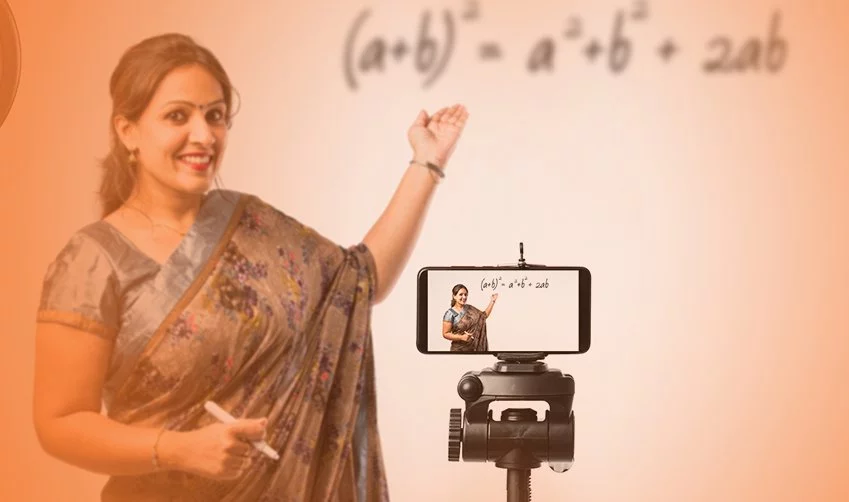Stages of School Education in India
.png)
What are the stages of school education in India?
School education in India is divided into well-defined stages that support a child’s academic growth and overall development. These stages are: Pre-Primary (Nursery to UKG), Primary (Classes 1 to 5), Middle (Classes 6 to 8), Secondary (Classes 9 and 10), and Senior Secondary (Classes 11 and 12).
Each stage is linked to a specific age group and learning level. As students move from one stage to the next, they build a strong foundation for higher education or career-focused paths. The system is designed to offer a structured and age-appropriate learning experience throughout a student’s school years.
The Indian Education Structure as per NEP 2020
The National Education Policy (NEP) 2020 brought significant reforms to the Indian education system, focusing on flexibility, accessibility, and inclusivity. According to the NEP, education is divided into five stages:
- Foundational Stage (Pre-Primary to Class 2): Early learning is focused on cognitive, emotional, and social development.
- Preparatory Stage (Classes 3 to 5): Students learn subjects like mathematics, science, and languages.
- Middle Stage (Classes 6 to 8): Students engage in more specialized subjects, and the importance of critical thinking is emphasized.
- Secondary Stage (Classes 9 to 12): Students choose academic streams based on their interests, such as Science, Commerce, or Arts.
- Higher Education (Post-12th): After completing senior secondary education, students may pursue undergraduate and postgraduate studies.
Key School Boards in India
In India, education is primarily governed by different boards of education that set the academic curriculum for schools. The major school boards in India include:
- CBSE (Central Board of Secondary Education): CBSE is one of the most widely recognized boards across India. It follows a structured curriculum from Classes 1 to 12, with a focus on a comprehensive and balanced education.
- ICSE (Indian Certificate of Secondary Education): ICSE is known for its detailed and structured curriculum, particularly at the secondary school level, Class 10.
- State Boards: Each state has its own education board, following a curriculum tailored to local needs and languages.
- IB (International Baccalaureate): An international program that focuses on critical thinking, creativity, and global understanding. It offers both primary and secondary education stages, including a high school program that ends with Class 12.
What is Pre-Primary Education in India?
Pre-primary education in India generally starts at the age of 3 and goes on till the age of 6, which comprises kindergartens or playschools. These schools have varying names for different levels of classes, beginning from Pre-Nursery, Nursery, KG, LKG (Lower Kindergarten), and UKG (Upper Kindergarten). Nowadays, most people start school as early as possible, and there are many private school options available in most towns and cities.
Understanding Primary Education in India
Parents usually choose between government and private schools depending on their budget and preferences. Primary education in India is typically for children aged 5 to 12 years and lasts for 4 to 5 years.
This phase includes basic subjects like:
- English
- Hindi or a regional language (based on the education board)
- Mathematics
- Environmental Science
- General Knowledge
The Government of India has made primary education compulsory for children aged 6 to 14 years.
Most schools provide primary education from Class 1 to Class 4 or 5, though this varies slightly across states.
States and union territories following Class 1 to Class 5 format include: Andhra Pradesh, Arunachal Pradesh, Bihar, Haryana, Himachal Pradesh, Jammu & Kashmir, Madhya Pradesh, Manipur, Orissa, Punjab, Chandigarh, Delhi, Karaikal, and Yanam regions of Pondicherry.
States and UTs following the Class 1 to Class 4 structure include: Assam, Goa, Gujarat, Karnataka, Kerala, Maharashtra, Meghalaya, Mizoram, Nagaland, Dadra & Nagar Haveli, Daman & Diu, Lakshadweep, and the Mahe region of Pondicherry.
Note: Under NEP 2020, many schools are transitioning to the 1-5 structure for primary education to ensure alignment with national guidelines, though some states may still follow the 1-4 pattern during the transition phase.
Middle School Education in India: Classes 6 to 8 Explained
Middle school education in India covers Classes 6 to 8 and serves as a bridge between primary and secondary stages. Students aged between 11–14 years engage in more advanced subjects, including science, mathematics, social studies, and languages. This stage focuses on developing analytical skills, problem-solving abilities, and preparing students for the more specialized curriculum of secondary education.
Secondary Education: High School Overview
The secondary stage of education, covering 2–3 years of academic study, starts with classes 9th–10th, consisting of students aged between 14-16 years. The schools that impart education up to the 10th class are known as Secondary Schools, High Schools, Senior Schools, etc.
Some of the states/union territories that follow the 8th–10th class of secondary stage are Goa, Gujarat, Karnataka, Kerala, Dadra & Nagar Haveli, Daman & Diu, Lakshadweep, etc.
Some of the states/union territories that follow the 9th–10th class of secondary stage are Punjab, Rajasthan, Sikkim, Tamil Nadu, Andaman & Nicobar Islands, Chandigarh, Delhi, Karaikal region of Pondicherry, etc.
Note: As per the Ministry of Education and NEP 2020 guidelines, secondary education is nationally classified as Classes 9 and 10, though some states continue to follow the 8th–10th classification as part of their local education structure.
Reference: Ministry of Education Classification of Education Levels
Higher Secondary Vs. Senior Secondary Education
It is only for 2 years. There is uniformity at this level of education in terms of the duration and classes, i.e., all the States/UTs follow this 10+2 pattern.
In India, the terms Higher Secondary and Senior Secondary are used interchangeably to refer to Classes 11th and 12th, which cater to students aged between 16–18 years. At this level of education, students can choose their preferred stream and subjects, such as Arts, Commerce, or Science (Medical & Non-Medical).
The schools that provide education up to class 12th are commonly known as Senior Secondary Schools or Higher Secondary Schools. Many schools are affiliated with secondary schools, while some states have specific Junior colleges.
Some students also choose to do a diploma after the 10th class instead of appearing for the 12th exam.
State-Wise Variations in Education Stages
While the Indian education system is broadly similar across the country, state-wise variations exist, particularly in the structure of secondary and senior secondary education. The classification of schools into categories like primary, secondary, and senior secondary can differ based on local requirements and the education board being followed.
For example:
- In some states, the secondary education stage might be from Class 9 to Class 10, while in others, it begins from Class 6.
- In regions that follow the state board, there may be differences in the structure of senior secondary education, like specific subject options and examinations.
Choosing the Right School: Key Considerations for Parents
When choosing a school for your child, consider these essential factors to make an informed decision:
- Curriculum and Board of Education: Choose between CBSE, ICSE, State Board, or other systems based on the child’s future academic goals.
- School Infrastructure and Facilities: Ensure the school provides essential infrastructure, including science labs, libraries, and extracurricular facilities.
- Teaching Methodology: Look for schools that use innovative learning systems like project-based learning or those aligned with the NEP 2020.
- Focus on Extracurricular Activities: Activities such as sports, arts, and cultural events are vital for your child’s holistic development.
- Proximity to Home: Consider the school’s distance from home to reduce travel time and enhance your child’s learning experience.
By considering these factors, you can ensure that your child receives the best possible education at every stage, right from primary to secondary and senior secondary levels.
Explaining Key Concepts:
Secondary School Meaning:
Secondary school in India refers to the academic stage that typically covers Classes 9 to 10. This includes high school education, where students start building a foundation for their future careers.
High School Meaning:
In many regions, high school means Classes 9 to 12. This stage focuses on preparing students for their final board exams and their academic specializations in the future.
Secondary Education Meaning:
The term secondary education in India refers to the education provided from Class 9 to 10. It’s a crucial phase for students to develop the core academic skills they need before moving on to more specialized subjects in higher secondary education.
Senior Secondary School:
Senior secondary school refers to the final two years of secondary education, specifically Classes 11 and 12. At this stage, students specialize in subjects based on their interests, like Science, Commerce, or Arts, and prepare for higher education or vocational courses.




